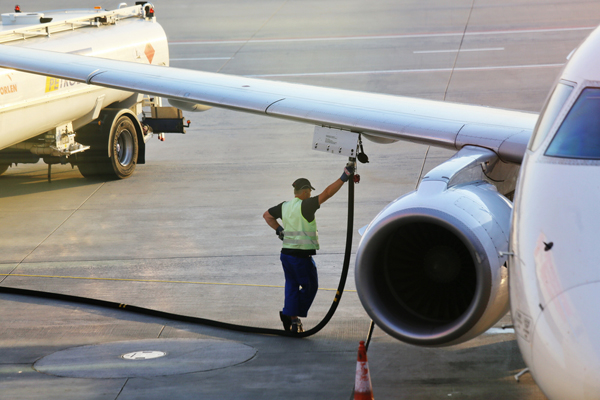The UK government has committed to ambitious goals to enhance sustainable aviation fuel (SAF) production, addressing aviation industry demands.
Plans include supplying 1.2 million tonnes of SAF annually, aiming for 10% of jet fuel from sustainable sources by 2030.
The UK government unveiled robust plans to increase sustainable aviation fuel (SAF) production. This includes a yearly supply of 1.2 million tonnes, equating to sufficient fuel for 3,000 global circumnavigations. This announcement follows the allocation of £135 million through the Advanced Fuels Fund, bolstering 13 SAF projects nationwide. The overarching goal is to ensure that by 2030, 10% of all jet fuel used in UK flights derives from sustainable sources.
The introduction of the SAF mandate results from thorough consultations within the aviation sector, marked by Virgin Atlantic’s pioneering 100% SAF transatlantic flight from Heathrow in November. A Department for Transport spokesperson highlighted the balance of SAF’s higher costs with consumer cost protection. The plan aims to avert flight rationing through demand management and includes mechanisms to monitor prices and moderate ticket price impacts.
Key stakeholders agree that a robust SAF industry is crucial for energy independence and economic prosperity. Airport Operators Association’s Karen Gee noted the revenue certainty scheme as a vital confidence booster for investors, indicating the UK’s serious commitment to self-reliance in SAF production.
IAG CEO Luis Gallego reaffirmed support for the Jet Zero Council to expedite the establishment of much-needed SAF plants in the UK. While Virgin Atlantic welcomed the mandate, concerns persist regarding potential burdens on airlines and consumers. The call for increased government backing to attract private investments aligns with the Jet Zero strategy’s objectives.
Ensuring flights remain cost-effective is essential, as highlighted in Abta’s manifesto. The government’s inclusion of a review mechanism to manage tickets prices signifies an understanding of balancing decarbonisation efforts with affordability.
The industry anticipates that these measures will consolidate investor confidence and catalyse further advancements in the UK’s aviation fuel sector.
The path forward for the UK SAF industry appears promising, with concerted government and industry efforts aimed at fostering a sustainable and independent aviation fuel ecosystem.
The UK’s proactive SAF strategy sets a clear path for sustainable aviation growth, ensuring environmental, economic, and consumer benefits.
Collaboration between government and industry remains key to achieving these ambitious, yet essential, sustainability goals.

